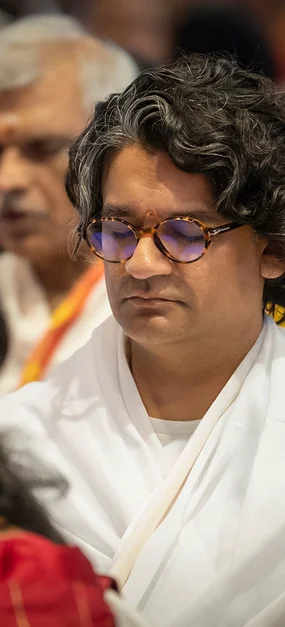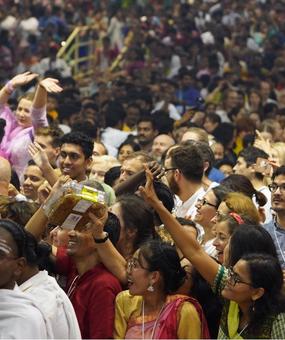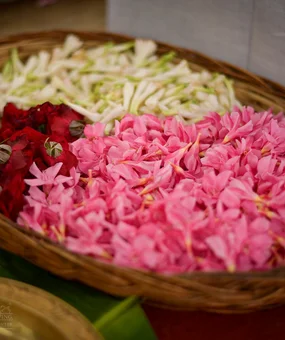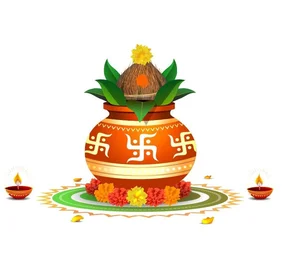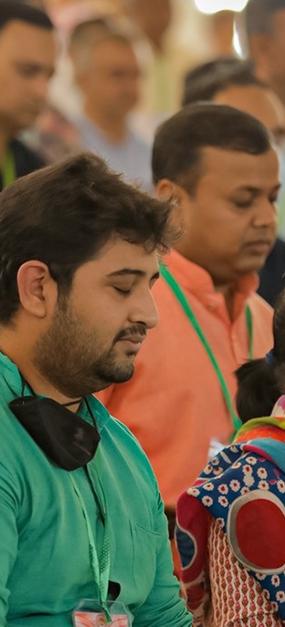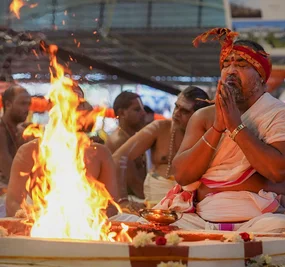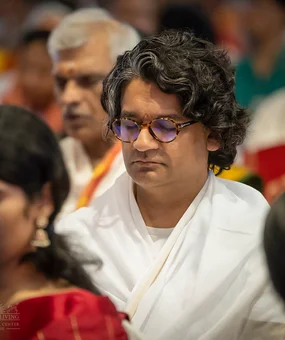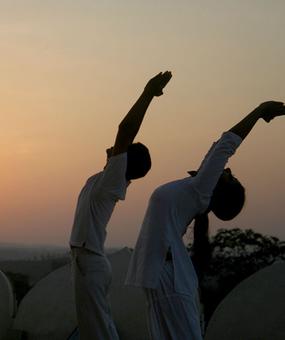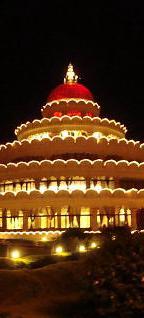The winds blew favourably and the universe was back in sync, once the Devi killed Shumbha and Nishumbha. The wish of the Gods had been fulfilled and they lauded Devi in the form of Katyayani cheerfully! The benevolent Goddess was pleased and granted them a boon of their choosing, for the welfare of the universe. The Gods asked for destruction of the foes and the pacification of all the afflictions of three worlds.
The Devi granted them their boon and promised to incarnate on earth in the most ferocious forms whenever trouble arises due to the advent of negative forces on mankind.
The Devi said, “Whoever recites these hymns of the Devi Mahatmayam, will be forever blessed. I shall without doubt, put an end to all his troubles.” The Devi Saptashati is the supreme way to well-being. Hearing these stories destroys sins, and grants freedom from illness. The recital of the manifestations of the Devi affords protection from evil spirits.
The Devi said, “Mahatmayam must be chanted by those of concentrated minds and listened to constantly with devotion. This Mahatmyam will quell all sufferings due to epidemics, as also the three types of calamities (Adhyatmika, Adhibhautika and Adhi-daivika). I will never forsake the place of my sanctuary where these stories are chanted every day. The Mahatmyam should be chanted and heard during auspicious pujas and homas to the sacred fire with offerings and devotion. I shall fondly accept the sacrifice, the worship and the fire-ritual thus done, whether they are done with appropriate knowledge or not.”
Having blessed thus, the benevolent Devi vanished from there, leaving the Gods in awe and gratitude.
When Rishi Medha recited the Durga Saptashati to King Suratha and Samadhi (the merchant), who had become despondent due to excessive attachment, prostrated before the illustrious Rishi of sever penances and immediately repaired to perform austerities. They made an earthen statue of the Goddess on the banks of a river and began worshiping Her. Abstaining from food and water, their only thought was of that of offering themselves in complete surrender to the Devi. When they, worshipped Her thus for three years, the Devi was pleased and appeared before them.
The Devi said, “O King, whatever you prayed for, and dear merchant, whatever you too prayed for, receive all that from me. Well pleased, I bestow those boons to you both”.
Then the King chose a kingdom that would be imperishable even in a future life, while in this life, he sought strength to destroy the strength of his enemies and thereby the restoration of his own kingdom. But the wise merchant, whose mind was full of dispassion for the world, chose the knowledge, which releases one from the attachment of ‘mine’ and ‘I’.
Suratha is one who has a good chariot. The body is the chariot while the Self is the rider. Samadhi, on the other hand is a merchant representing a concentrated or focussed mind; a mind that is absorbed in meditation. The king and the merchant are archetypal characters.
We are all a bit like the king and the merchant. At some point of time we all experience suffering and loss. In spite of our pain we still cling on to our old ways and old associations. We fail to discern and learn from our past. Instead we simply brood over the past constantly reliving our miseries in the present. Thus Suratha (a good chariot) and Samadhi (a concentrated or focused mind) cannot serve their true purpose till they meet the sage Medha (insight or knowledge), who can lead them to the Goddess, to the Supreme Self.



